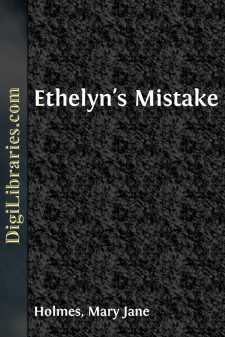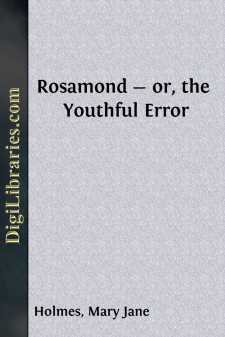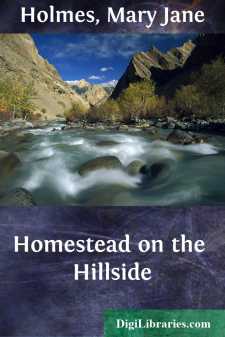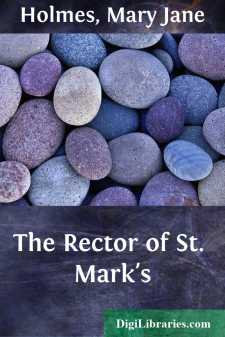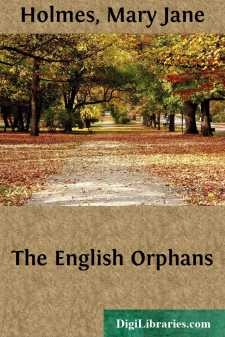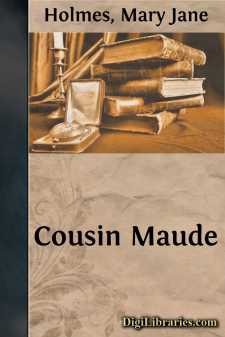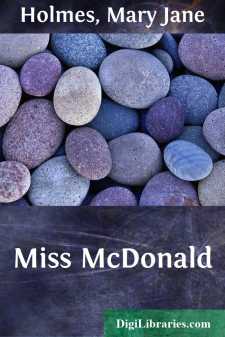Categories
- Antiques & Collectibles 13
- Architecture 36
- Art 48
- Bibles 22
- Biography & Autobiography 815
- Body, Mind & Spirit 144
- Business & Economics 28
- Children's Books 18
- Children's Fiction 14
- Computers 4
- Cooking 94
- Crafts & Hobbies 4
- Drama 346
- Education 58
- Family & Relationships 59
- Fiction 11835
- Games 19
- Gardening 17
- Health & Fitness 34
- History 1378
- House & Home 1
- Humor 147
- Juvenile Fiction 1873
- Juvenile Nonfiction 202
- Language Arts & Disciplines 89
- Law 16
- Literary Collections 686
- Literary Criticism 179
- Mathematics 13
- Medical 41
- Music 40
- Nature 180
- Non-Classifiable 1768
- Performing Arts 7
- Periodicals 1453
- Philosophy 65
- Photography 2
- Poetry 896
- Political Science 203
- Psychology 44
- Reference 154
- Religion 515
- Science 126
- Self-Help 85
- Social Science 83
- Sports & Recreation 34
- Study Aids 3
- Technology & Engineering 59
- Transportation 23
- Travel 463
- True Crime 29
Our website is made possible by displaying online advertisements to our visitors.
Please consider supporting us by disabling your ad blocker.
Ethelyn's Mistake
by: Mary Jane Holmes
Description:
Excerpt
CHAPTER I
ETHELYN
There was a sweet odor of clover blossoms in the early morning air, and the dew stood in great drops upon the summer flowers, and dropped from the foliage of the elm trees which skirted the village common. There was a cloud of mist upon the meadows, and the windings of the river could be distinctly traced by the white fog which curled above it. But the fog and the mists were rolling away as the warm June sun came over the eastern hills, and here and there signs of life were visible in the little New England town of Chicopee, where our story opens. The mechanics who worked in the large shoe-shop halfway down Cottage Row had been up an hour or more, while the hissing of the steam which carried the huge manufactory had been heard since the first robin peeped from its nest in the alders down by the running brook; but higher up, on Bellevue Street, where the old inhabitants lived, everything was quiet, and the loamy road, moist and damp with the dews of the previous night, was as yet unbroken by the foot of man or rut of passing wheel.
The people who lived there, the Mumfords, and the Beechers, and the Grangers, and the Thorns, did not strictly belong to the working class. They held stocks in railroads, and mortgages on farms, and so could afford to sleep after the shrill whistle from the manufactory had wakened the echoes of the distant hills and sounded across the waters of Pordunk Pond. Only one dwelling here showed signs of life, and that the large square building, shaded in front with elms and ornamented at the side with a luxuriant queen of the prairie, whose blossoms were turning their blushing faces to the rising sun. This was the Bigelow house, the joint property of Mrs. Dr. Van Buren, née Sophia Bigelow, who lived in Boston, and her sister, Miss Barbara Bigelow, the quaintest and kindest-hearted woman who ever bore the sobriquet of an old maid, and was aunt to everybody. She was awake long before the whistle sounded across the river and along the meadow lands, where some of the workmen lived, and just as the robin, whose nest for four summers had been under the eaves where neither boy nor cat could reach it, brought the first worm to its clamorous young, she pushed the fringed curtain from her open window, and with her broad frilled cap still on her head, stood for a moment looking out upon the morning as it crept up the eastern sky. "She will have a nice day for her wedding. May her future life be as fair," Aunt Barbara whispered softly, then kneeling before the window with her head bowed upon the sill, she prayed earnestly for God's blessing on the bridal to take place that night beneath her roof, and upon the young girl who had been both a care and a comfort since the Christmas morning eighteen years before, when her half-sister Julia had come home to die, bringing with her the little Ethelyn, then but two years old.
Aunt Barbara's prayers were always to the point. She said what she had to say in the fewest possible words, wasting no time in repetition, and on this occasion she was briefer than usual, for the good woman had many things upon her mind this morning. First, there was Betty to rouse and get into a state of locomotion, a good half hour's work, as Aunt Barbara knew from a three years' experience. There was the "sponge" put to rise the previous night. She must see if that had risen, and with her own hands mold the snowy breakfast rolls which Ethelyn liked so much. There were the chambers to be inspected a second time, to ascertain if everything was in its place, and dinner to be prepared for the "Van Buren set" expected up from Boston, while last, though far from least, there was Ethelyn herself to waken when the clock should chime the hour of six, and this was a pleasure which good Aunt Barbara would not for the world have foregone. Every morning for the last sixteen years, when Ethelyn was at home, she had gone to the pleasant, airy chamber where her darling slept, and bending over her had kissed her fair, glowing cheek, and so called her back from the dreamless slumber which otherwise might have been prolonged to an indefinite time, for Ethelyn did not believe in the maxim, "Early to bed and early to rise," and always begged for a little more indulgence, even after the brown eyes unclosed and flashed forth a responsive greeting to the motherly face bending above them.
This morning, however, it was not needful that Aunt Barbara should waken her, for long before the robin sang, or the white-fringed curtain had been pushed aside from Aunt Barbara's window, she was awake, and the brown eyes, which had in them a strange expression for a bride's eyes to wear, had scanned the eastern horizon wistfully, aye, drearily it may be, to see if it were morning, and when the clock in the kitchen struck four, the quivering lip had whispered, oh, so sadly, "Sixteen hours more, only sixteen," and with a little shiver the bed-clothes had been drawn more closely around the plump shoulders, and the troubled face had nestled down among the pillows to smother the sigh which never ought to have come from a maiden's lips upon her wedding day. The chamber of the bride-elect was a pleasant one, large and airy and high, with windows looking out upon the Chicopee hills, and from which Ethelyn had many a time watched the fading of the purplish twilight as, girl-like, she speculated upon the future and wondered what it might have in store for her. One leaf of the great book had been turned and lay open to her view, but she shrank away from what was written there, and wished so much that the record were otherwise. Upon the walls of Ethelyn's chamber many pictures were hung, some in water colors, which she had done herself in the happy schooldays which now seemed so far away, and some in oil, mementos also of those days. Pictures, too, there were of people, one of dear Aunt Barbara, whose kindly face was the first to smile on Ethelyn when she woke, and whose patient, watchful eyes seemed to keep guard over her while she slept. Besides Aunt Barbara's picture there was another one, a fair, boyish face, with a look not wholly unlike Ethelyn, herself, save that it lacked the firmness and decision which were so apparent in the proud curve of her lip and the flash of her brown eyes. Fair-haired and blue-eyed, with something feminine in every feature, it seemed preposterous that the original could ever make a young girl's heart ache as Ethelyn Grant's was aching that June morning, when, taking the small oval frame from the wall, she kissed it passionately, and then thrust it away into the bureau drawer, which held other relics than the oval frame. It was, in fact, the grave of Ethelyn's buried hopes--the tomb she had sworn never to unlock again; but now, as her fingers lingered a moment amid the mementos of the years when, in her girlish ignorance, she had been so happy, she felt her resolution giving way, and sitting down upon the floor, with her long hair unfastened and falling loosely about her, she bowed her head over buried treasures, and dropped into their grave the bitterest tears she had ever shed. Then, as there swept over her some better impulse, whispering of the wrong she was doing to her promised husband, she said:
"I will not leave them here to madden me again some other day. I will burn them, every one."
There were matches within her reach, while the little fireplace was not far away, and, sitting just where she was, Ethelyn Grant burned one after another, letters and notes, some directed in schoolboy style, and others showing a manlier hand, as the dates grew more recent and the envelopes bore a more modern and fashionable look. Over one, the freshest and the last, Ethelyn lingered a moment, her eyes growing dark with passion, and her lips twitching nervously as she read:
"BOSTON, April--
"Dear Ethie: I reckon mother is right, after all. She generally is, you know, so we may as well be resigned, and believe it wicked for cousins to marry each other. Of course I can never like Nettie as I have liked you, and I feel a twinge every time I remember the dear old times. But what must be must, and there's no use fretting. Do you remember old Colonel Markham's nephew from out West--the one who wore the short pants and the rusty crape on his hat when he visited his uncle, in Chicopee, some years ago? I mean the chap who helped you over the fence the time you stole the colonel's apples. He has become a member of Congress, and quite a big gun for the West, at least, mother thinks. He called on her to-day with a message from Mrs. Woodhull, but I did not see him. He goes up to Chicopee to-morrow, I believe. He is looking for a wife, they say, and mother thinks it would be a good match for you, as you could go to Washington next winter and queen it over them all. But don't, Ethie, don't for thunder's sake! It fairly makes me faint to think of you belonging to another, even though you may never belong to me. Yours always, Frank."
There was a dark, defiant look in Ethelyn's face as she applied the match to this letter, and then watched it blacken and crisp upon the hearth. How well she remembered the day when she received it--the dark, dismal April day, when the rain which dropped so fast from the leaden clouds, seemed weeping for her, who could not weep then, so complete was her humiliation, so utter her desolation. That was not quite three months ago, and so much had happened since then as the result of that M.C.'s visit to Chicopee. He was there again, this morning, an inmate of the great yellow house, with the large, old-fashioned brass knocker, and, by just putting aside her curtain, Ethelyn could see the very window of the chamber where he slept. But Ethelyn had other matters in hand, and if she thought at all of that window whose shutters were rarely opened except when Colonel Markham had, as now, an honored guest, it was with a faint shudder of terror, and she went on destroying mementos which were only a mockery of the past. One little note, the first ever received from Frank, after a, memorable morning in the huckleberry hills, she could not burn. It was only a line, and, if read by a stranger, would convey no particular meaning; so she laid it aside with the lock of light, soft hair, which clung to her fingers with a kind of caressing touch, and brought to her hot eyelids a mist which cooled their feverish heat. And now nothing remained of the treasures but a tiny tortoise-shell box, where, in its bed of pink cotton, lay a little ring, with "Ethie" marked upon it. It was too small for the finger it once encircled, for Ethel was but a child when first she wore it. Her hands were larger; plumper, now, and it would not pass the second joint of her finger, though she exerted all her strength to push it on, taking a kind of savage delight in the pain it caused her, and feeling that she was thus revenging herself on someone, she hardly knew or cared whom. At last, however, with a quick, jerking motion she drew it off, and covering her face with her hands, moaned bitterly:
"It hurts! it hurts! just as the bonds hurt which are closing around my heart. Oh! Frank, Frank, it was cruel to serve me so."
There was a step in the hall below. Aunt Barbara was coming to waken Ethelyn, and, with a spring, the young girl bounded to her feet, swept her hands twice across her face, and, shedding back from her forehead her wealth of bright brown hair, laughingly confronted the good woman, who, in the same breath, expressed her surprise that her niece was once up without being called, and her wonder at the peculiar odor pervading the apartment.
"Smells if all the old newspapers in the barrel up garret had been burnt at once," she said; but the fireplace, which lay in shadow, told no tales, and Aunt Barbara never suspected the pain tugging at the heart of the girl, whose cheeks glowed with an unnatural red as she dashed hot water over neck, and arms, and face, playfully plashing a few large drops upon her aunt's white apron, and asking if there was not an old adage, "Blessed is the bride the sun shines on." "If so, I must be greatly blessed," she said, pushing open the eastern shutter, and letting in a flood of yellow sunlight.
"The day bids fair to be a scorcher. I hope it will grow cool this evening. A crowded party is so terrible when one feels hot and uncomfortable, and the millers and horn-bugs come in so thickly, and I always get so red in the face. Please, auntie, you twist up my hair in a flat knot--no matter how. I don't seem to have any strength in my arms this morning, and my head is all in a whirl. It must be the weather," and, with a long, panting breath, Ethelyn sank, half fainting, into a chair, while her frightened aunt ran for water, and camphor, and cologne, hoping Ethelyn was not coming down with fever, or any other dire complaint, on this her wedding day.
"It is the weather, most likely, and the awful amount of sewing you've done these last few weeks," said Aunt Barbara; and Ethelyn suffered her to think so, though she herself had a far different theory with regard to that almost fainting fit, which served as an excuse for her unusual pallor, for her listless apathy, and her want of appetite, even for the flaky rolls, and the delicious strawberries, and thick, yellow cream which Aunt Barbara put before her.
She was not hungry, she said, as she turned over the berries with her spoon, and pecked at the snowy rolls. By and by she might want something, perhaps, and then Betty would make her a slice of toast to stay her stomach till the late dinner they were to have on Aunt Van Buren's account--that lady always professing to be greatly shocked at the early dinners in Chicopee, and generally managing, during her visits home, to change entirely the ways and customs of Aunt Barbara Bigelow's well-ordered household.
"I wish she was not coming, or anybody else. Getting married is a bore!" Ethelyn exclaimed, while Aunt Barbara looked curiously enough at her, wondering, for the first time, if the girl's heart were really in this marriage, which for weeks had been agitating the feminine portion of Chicopee, and for which so great preparations had been made.
Wholly honest and truthful and sincere herself, Aunt Barbara seldom suspected wrong in others, and so when Ethelyn, one April night, after a drive around the road which encircles Pordunk Pond, came to her and said, "Congratulate me, auntie, I am to be Mrs. Judge Markham," she had believed all was well, and that as sister Sophia Van Buren, of Boston, had so often averred, there was not, nor ever had been, anything serious between dandyish Frank, Mrs. Van Buren's only son, who parted his curly hair in the middle, and the high-spirited, impulsive Ethelyn, whose eyes shone like stars as she told of her engagement, and whose hand was icy cold as she held it up to the lamp-light to show the large diamond which flashed from the fourth finger as proof of what she said. The stone itself was of the first water, but the setting was old, so old that a connoisseur in such matters might wonder why Judge Markham had chosen such a ring as the seal of his betrothal. Ethelyn knew why, and the softest, kindliest feeling she had experienced for her promised husband was awakened when he told her of the fair young sister whose name was Daisy, and who for many years had slept on the Western prairie beneath the blossoms whose name she bore. This young girl, loving God with all her soul, loved too all the beautiful things he had made, and rejoiced in them as so much given her to enjoy. Brought up in the far West, where the tastes of the people were simpler than those of our Eastern neighbors, it was strange, he said, how strong a passion she possessed for gems and precious stones, especially the diamond. To have for her own a ring like one she once saw upon a grand Chicago lady was her great ambition, and knowing this the brother hoarded carefully his own earnings, until enough was saved to buy the coveted ring, which he brought to his young sister on her fourteenth birthday. But death even then had cast its shadow around her, and the slender fingers soon grew too small for the ring, which she nevertheless kept constantly by her, admiring its brilliancy, and flashing it in the sunlight for the sake of the rainbow hues it gave. And when, at last, she lay dying in her brother's arms, with her golden head upon his breast, she had given back the ring, and said, "I am going, Richard, where there are far more beautiful things than this: 'for eye hath not seen, neither hath it entered into the heart of man, the things prepared for those who love Him,' and I do love Him, brother, oh! so much, and feel His arms around me now as sensibly as I feel yours. His will stay after yours are removed, and I am done with earth; but keep the ring, Brother Dick, and when in after years you love some pure young girl as well as you love me, only different--some girl who will prize such things, and is worthy of it--give it to her, and tell her it was Daisy's; tell her for me, and that I bade her love you, as you deserve to be loved."
All this Richard Markham had said to Ethelyn as they stood for a few minutes upon the beach of the pond, with its waters breaking softly upon the sands at their feet, and the young spring moon shining down upon them like Daisy's eyes, as the brother described them when they last looked on him. There was a picture of Daisy in their best room at home, an oil painting made by a traveling artist, Richard said, and some day Ethelyn would see it, for she had promised to be his wife, and the engagement ring--Daisy's ring--was on her finger, sparkling in the moonbeam, just as it used to sparkle when the dead girl held it in the light. It was a superb diamond--even Frank, with all his fastidiousness, would admit that, Ethelyn thought, her mind more, alas! on Frank and his opinion than on what her lover was saying to her, of his believing that she was pure and good as Daisy could have desired, that Daisy would approve his choice, if she only knew, as perhaps she did; he could not help feeling that she was there with them, looking into their hearts--that the silvery light resting so calmly on the silent water was the halo of her invisible presence blessing their betrothal. This was a good deal for Richard Markham to say, for he was not given to poetry, or sentiment, or imagery, but Ethelyn's face and Ethelyn's eyes had played strange antics with the staid, matter-of-fact man of Western Iowa, and stirred his blood as it had never been stirred before. He did fancy his angel-sister was there; but when he said so to Ethelyn she started with a shiver, and asked to be driven home, for she did not care to have even dead eyes looking into her heart, where the fires of passion were surging and swelling, like some hidden volcano, struggling to be free. She knew she was doing wrong--knew she was not the pure maiden whom Daisy would have chosen--was not worthy to be the bride of Daisy's brother; but she must do something or die, and as she did not care to die, she pledged her hand with no heart in it, and hushing the voice of conscience clamoring so loudly against what she was doing, walked back across the yellow sand, beneath the spring moonlight, to where the carriage waited, and, in comparative silence, was driven to Aunt Barbara's gate.
This was the history of the ring, and here, as well as elsewhere, we may tell Ethelyn's history up to the time when, on her bridal day, she sat with Aunt Barbara at the breakfast table, idly playing with her spoon and occasionally sipping the fragrant coffee. The child of Aunt Barbara's half-sister, she inherited none of the so-called Bigelow estate whi


